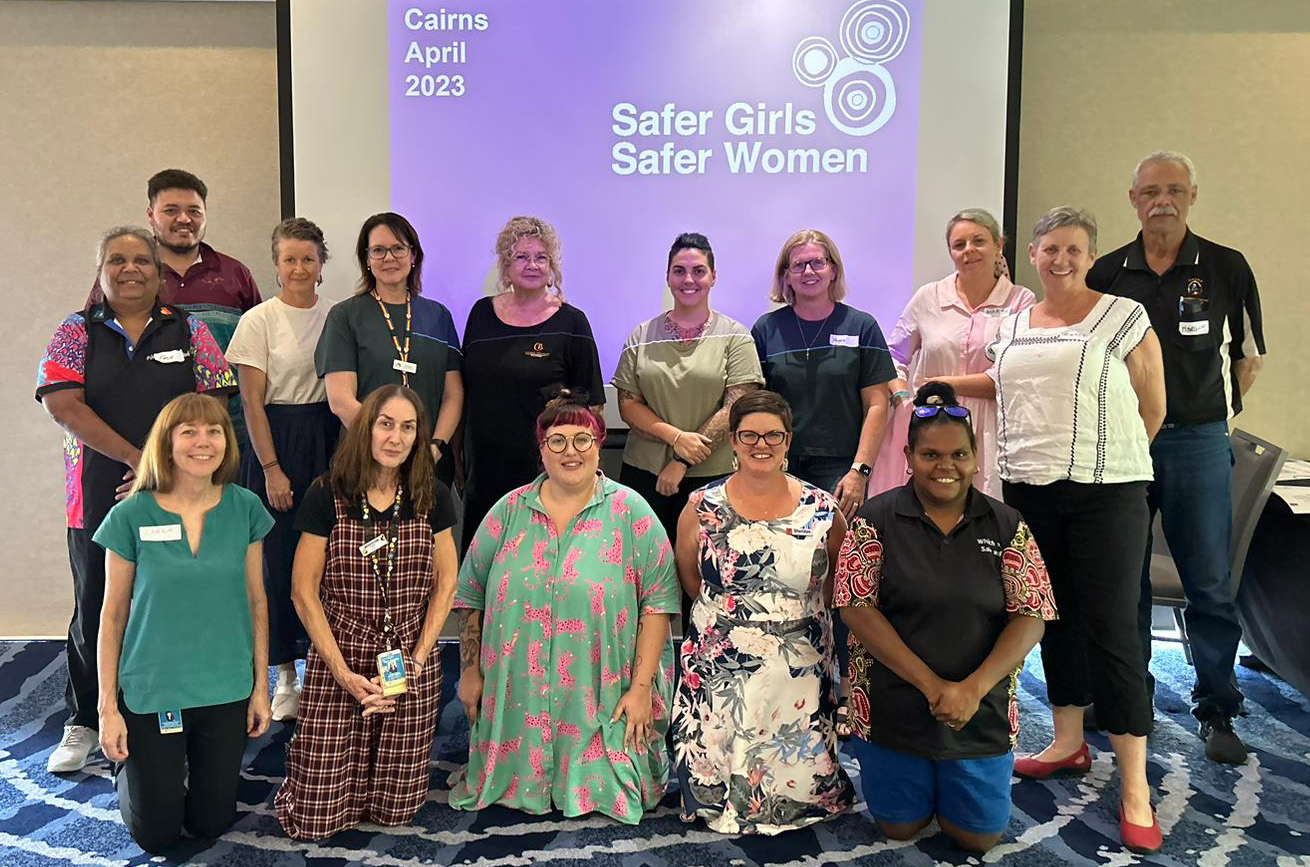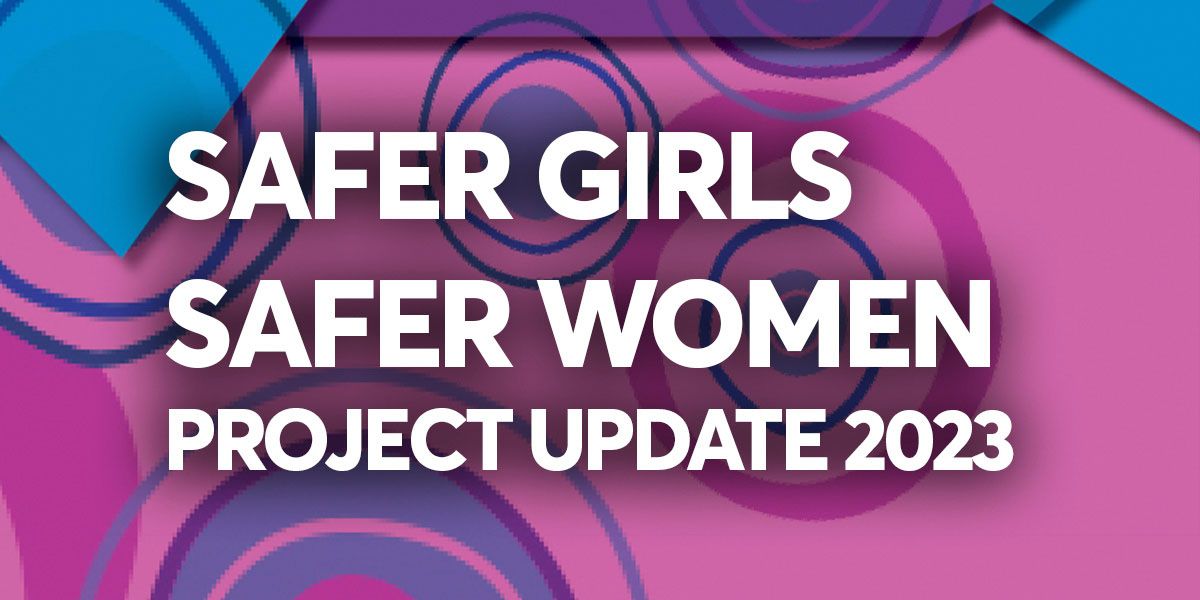
The Safer Girls Safer Women Project Update 2023
A future where people with disability, inclusive of all identities, experience social and sexual safety everywhere and always.
Summary of our Project
The Safer Girls Safer Women Project (the Project) is led by Sexual Health and Family Planning ACT (SHFPACT) and funded by the Department of Social Services, in alignment with Australia’s Disability Strategy 2021-31 (National Strategy) and the National Plan to End Violence against Women and Children 2022-32 (National Plan). The Project objectives are to increase workforce capability to create and support the social and sexual safety of girls, women and gender diverse people with disability. This three-year funding phase is coming to an end in June 2024.
Our approach has been to:
- Embed lived experience and expertise of women, girls and gender diverse people with disability in everything we do.
- Co-design, implement and evaluate all of our work with women, girls and gender diverse people with disability.
- Ensure our work is underpinned by the feminist human rights model and strengths-based approach.
The Project currently has three interconnected elements. These are:
- To amplify the voices of women, girls and gender diverse people with disability to co-design all of our initiatives.
- To develop best practice guidelines for organisations and workers to build approaches that increase social and sexual safety of women, girls and gender diverse people with disability.
- To extend the reach of the existing SoSAFE! Framework1 training and to adapt the implementation of SoSAFE! programs for diverse communities and the workforce sectors that support them.
Project Element 1:
Amplifying the Voices
Amplifying the voices of women, girls and gender diverse people with disability is central to our Project. All of the Amplifying the Voices activities inform the development of national guidelines that support workforces to create social and sexual safety for people with disability. We have also embedded our emerging learnings from these activities about how to build social and sexual safety in all of our work.
We have established an Advisory Group of 13 women and gender diverse people with disability who are guiding the Project using co-design principles. We have held a national symposium in 2022 and are hosting another in December 2023, bringing together the disability, education and gender-based violence sectors, and girls, women and gender diverse people with disability, to share understanding of what safety means to them. We have conducted consultations across Australia. This has included one-on-one interviews and focus groups with women, girls and gender diverse people with disability about social and sexual safety, including women with intellectual disability, complex communication needs and those with psychosocial disability. We completed a national survey to hear the views of over 120 women and gender diverse people with disability on social and sexual safety.
We have learned that every conversation about social and sexual safety with people with disability starts with establishing safety. People learn about relationships in relationship with others. We are creating and trialling a wide range of accessible resources to support meaningful conversations about safety with people with disability.
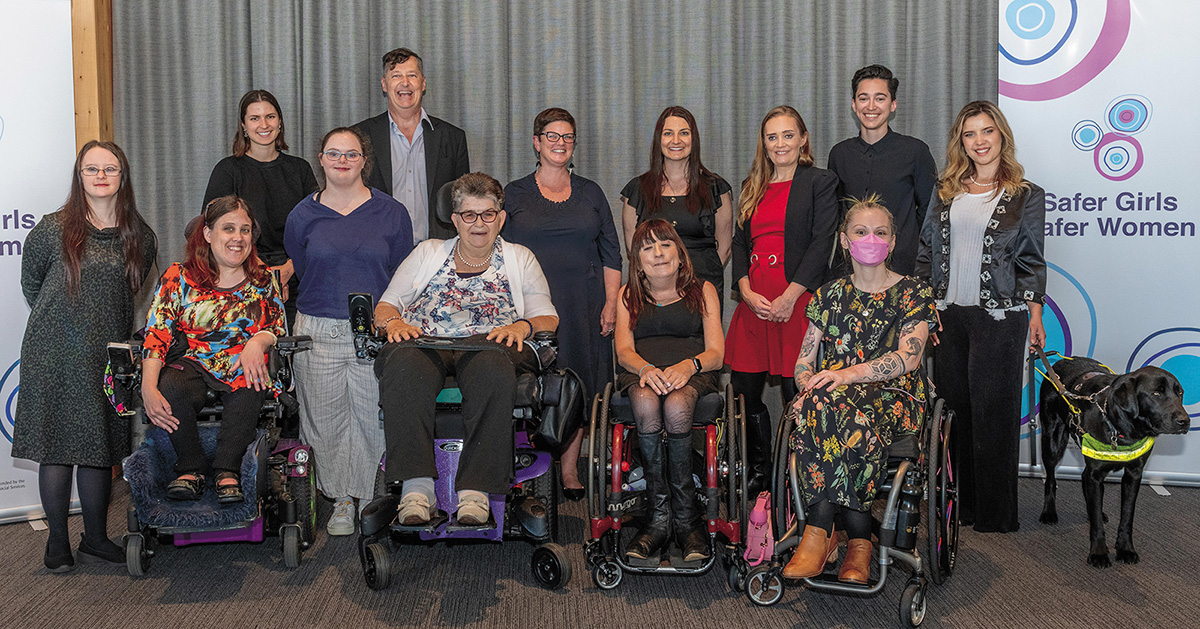
Speakers and Safer Girls Safer Women team members at the end of the 2022 Symposium in November.
Project Element 2:
Best Practice Guidelines
Our development of national guidelines will assist organisations to create cultures of safety in their workplaces. The purpose of these guidelines is to provide best practice principles for organisations and workers to adopt approaches that increase social and sexual safety of women, girls and gender diverse people with disability.
The guidelines include a practical toolkit to support organisations and workers to build and enable the social and sexual safety for people with disability. The guidelines provide key principles and approaches for sexual health, consent and respectful relationships education.
Project Element 3:
SoSAFE! Professional Learning
We have improved the SoSAFE! Framework to increase accessibility to diverse groups of people with disability and the workforce sectors who support them. In doing so, we are building an evidence-base around accessible information to create effective social and sexual safety.
As a result, a wide variety of workplaces have implemented this learning since participating in our training. The framework provides the workforce with the tools to talk, to talk earlier and to be explicit about what is making people safe and unsafe, in turn creating safer environments for everyone.
We are implementing more than 13 pilot projects utilising the SoSAFE! training module to better support safety across diverse communities. We are building partnerships and creating implementation guides with organisations and communities across the country, with a focus on our four key Project priority groups of people who are:
Living in regional, rural and remote areas
- Aboriginal and Torres Strait Islander
- Culturally and Linguistically Diverse
- LGBTIQA+
Project Partners
We have developed a variety of partnerships across the country, with particular focus on our four key priority groups. Our project partners include schools, sporting clubs, behaviour support practitioners, Disability Royal Commission counsellors, family planning organisations and government agencies. Some of our partners include the Australian Training Company (ACT), Aspect (Autism Spectrum Australia) (NSW), FIDA Football League (Victoria), Family Planning Welfare Association NT (NT), Family Planning Tasmania (Tasmania), Kowanyama State School and other remote schools (Queensland)2, Sexuality Education Counselling and Consultancy Agency (WA) and Life Without Barriers (National). We have also worked with government agencies such as the Office of the e-Safety Commissioner (National) and the NDIS Quality and Safeguards Commission (National).
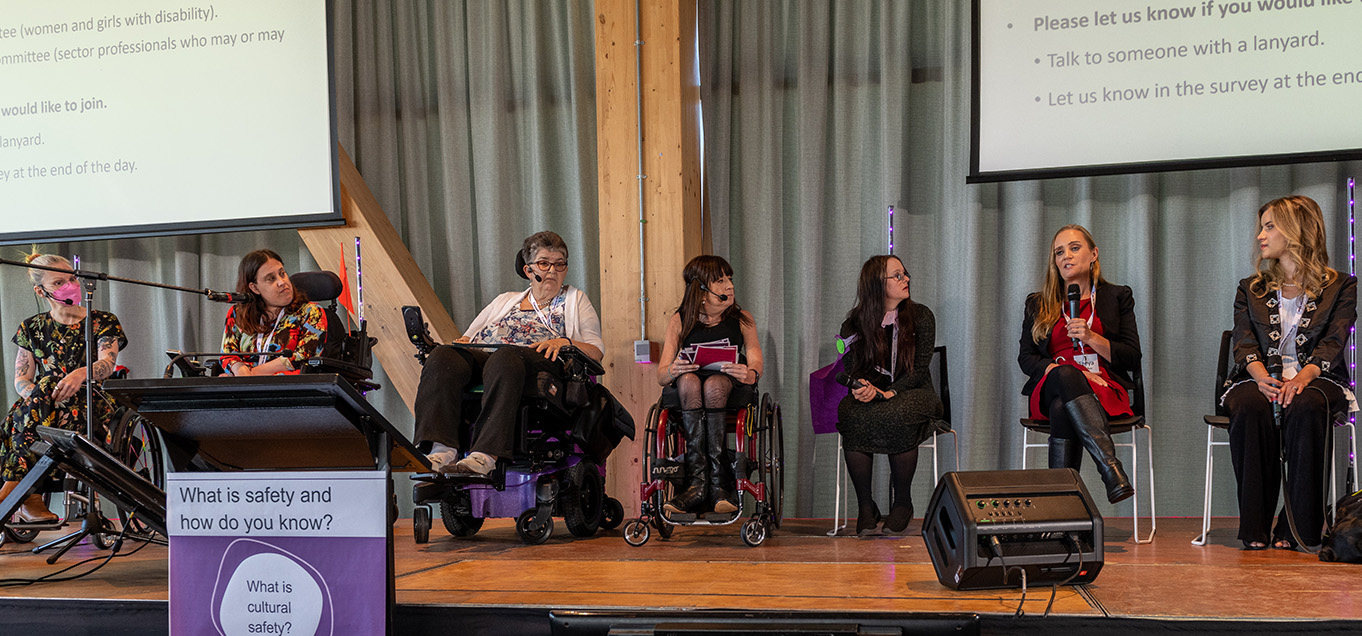
Panel discussion at the Safer Girls Safer Women 2022 Symposium. Left to right: Nicole Lee, Kate Fiedler, Liz Yates, Mel Harrison, Ruth Faragher, Freya Wolf, Rachael Leahcar.
Learnings and Outcomes
The key learnings from our Project are based on contextualising safety in each organisation and community, and so far include:
- That social and sexual safety are built through relationships, respect and listening.
- To talk about consent and sex with people with intellectual disability respectfully, you must first build trust and connection. The conversation begins with safety.
- The views and experiences of women, girls and gender diverse people with disability about social and sexual safety must be heard. This is exemplified by the stories told by people with disability to the Disability Royal Commission.
- There is a need for accessible and appropriate education and information on social and sexual safety for people with disability in many communities across Australia.
- It is essential that communities are provided with the tools to adapt language and materials to convey key messages around social and sexual safety.
- Communities are willing to engage with these issues with appropriate support, tools and resources.
Some of our key project outcomes to date include:
- Listening to people with disability through our various amplifying voices initiatives and embedding lived experience into everything we do.
- Supporting workforces to create cultures of safety through the development of practical tools, resources and frameworks that can be embedded within organisations and across communities.
- Building partnerships across the country through our commitment to listening and learning from organisations as best placed to lead this work in their own communities.
Another great SoSAFE training session for Safer Girls Safer Women, Cairns, April 2023. Over 500 people trained so far, to refresh the program.
Addressing Government Priorities
The Project aligns with existing Government priorities and reforms, including:
- Australia’s National Disability Strategy 2021-31.
- National Plan to End Violence against Women and Children 2022-32.
- Evidence presented and the outcomes and recommendations of the Royal Commission into Violence, Abuse, Neglect and Exploitation of People with Disability.
- The work of the NDIA and the NDIS Quality and Safeguards Commission.
- Safe and Supported: the National Framework for Protecting Australia’s Children 2021-31 and the National Principles for Child Safe Organisations.
- The National Children’s Mental Health and Wellbeing Strategy.
- Compliance with the Convention Against Torture and Cruel and Inhuman Treatment.
- Relationships and sexuality education content in the Australian curriculum.
The team are working closely with the Department of Social Services to explore funding opportunities in the future.
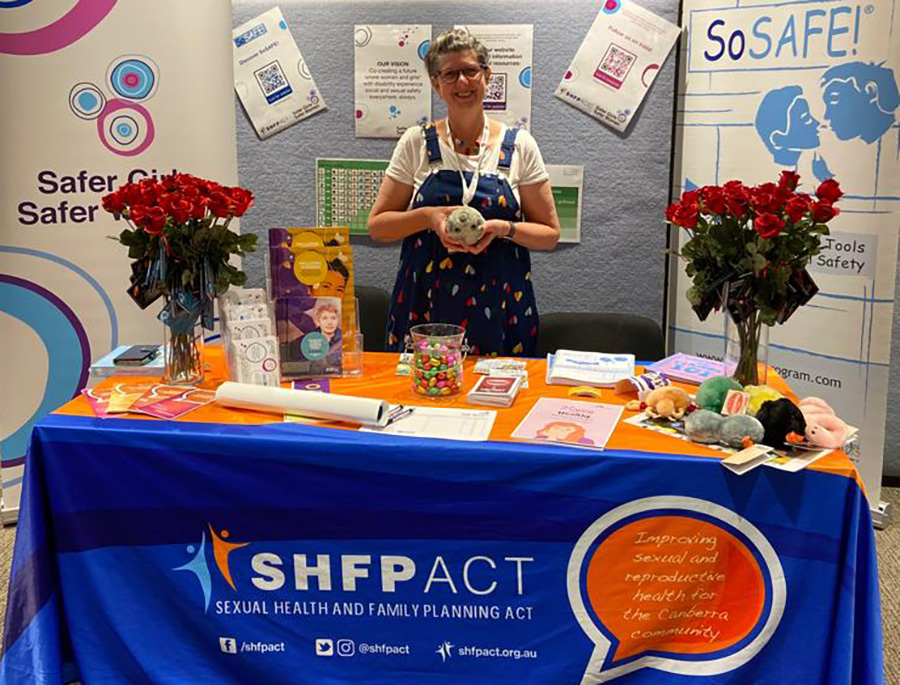
The Safer Girls Safer Women team promotes sexual and relationship wellbeing at the Relationships and Sexuality in Schools (RSIS) Conference, March 2023.
A future where people with disability, inclusive of all identities, experience social and sexual safety everywhere and always.
- Created on .
- Last updated on .
